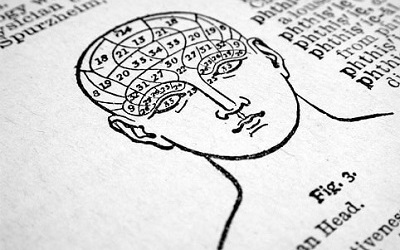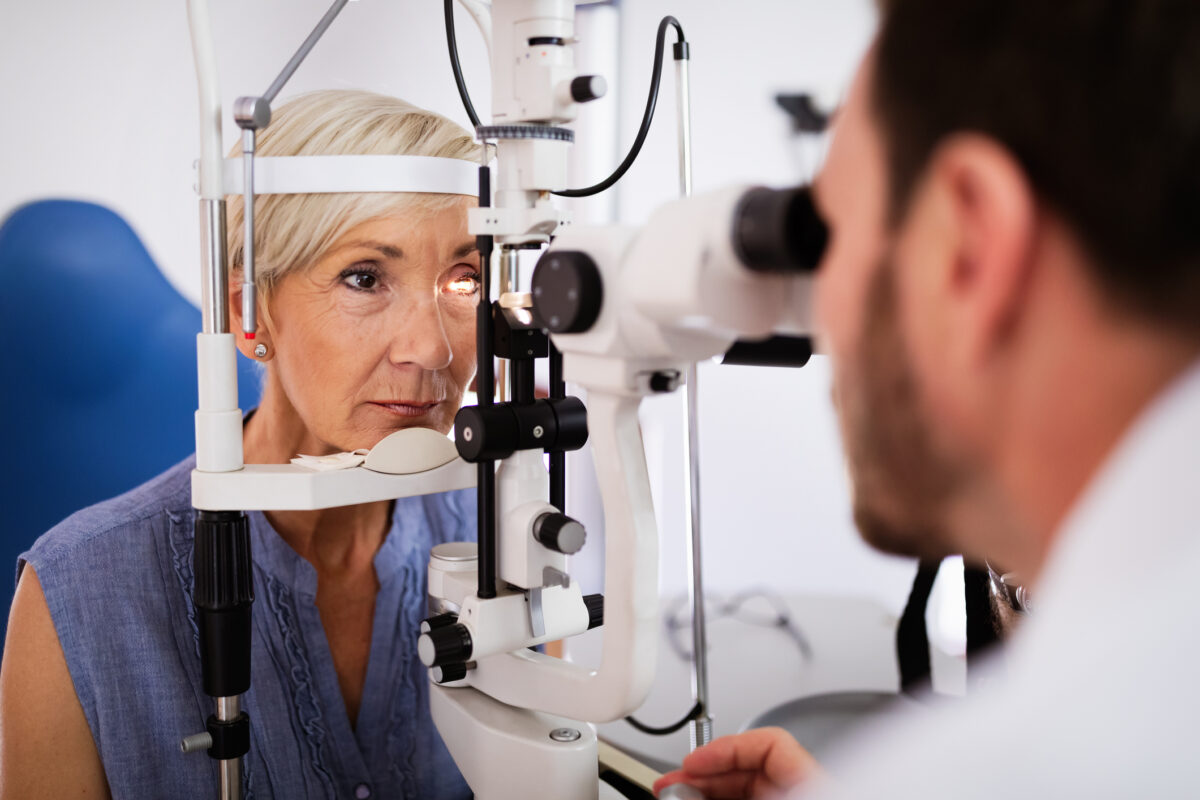Do you consider yourself a left-brain or a right-brain person? Do you hope to improve your memory by playing computer games? If so, you’ve likely been influenced by common myths about the human brain.
In fact, neurological researchers have expanded their understanding of how our brains work, upending some old beliefs. These researchers have uncovered facts that can help everyone understand more about how their brains function.
To learn more, check out these seven common myths about brains and the scientific evidence that dispels them:
Brain Myth #1: You Only Use 10% of Your Brain
Researchers have traced this myth back to 1907, when multiple sources pushed the idea that everyone could improve themselves if they used more of their brains. Repeated throughout the past century, this myth became belief. However, numerous scientific studies, in part due to the rise of modern brain scans, show that no area of the brain is completely inactive. In fact, researchers have found that most of our brain is in use most of the time, even during simple activities. On top of this, a large portion of our brain is active when we’re sleeping. This means, that while our brain’s regions are not all firing at once, researchers have not found evidence for 90% being inactive, like previously thought.
Brain Myth #2: Brain Function Declines As You Age
It’s not a myth that some cognitive skills slow down as people age, but the good news is that getting older can also improve your brain function. However, it’s important to know the difference between fluid intelligence and crystallized intelligence. Fluid intelligence refers to logical and creative thinking as well as problem-solving. Crystallized intelligence, refers to facts, data and skills that can be measured on a standardized test. Researchers have found that older brains sometimes process things more slowly. This means many older people experience an occasional moment of memory loss, which impacts their crystallized intelligence.
But neurologists and other experts have found positive impacts of aging, too. For example, researchers have found that older people have better vocabularies. They’re also better at understanding the meaning of words than many younger people. Older people may also have better judgment, an increased ability to make rational decisions and can more easily focus on positivity. This can help lessen symptoms associated with depression. Studies have also found that older generations have better spatial reasoning skills.
Brain Myth #3: The Brains of Men and Women Are Innately Different
While there are certainly examples of men and women reacting in different ways to the same information, these differences are not because of physical differences in the brain. Research has found that although some physical brain features (such as gray matter and nerve pathways) are more often found in one sex than the other, some are found in both. In fact, most people have a mix of brain features.
Researchers in one study found that only about six in every 100 people had features consistently associated with a single sex. The study also found evidence that your family, your culture and your life experiences influence sex differences in the brain. According to WebMD, “when your brain processes the same signals over and over, those networks will get stronger, like working out a muscle.” Therefore, male and female brains may start out similar but become different over time as boys and girls are treated differently with different expectations.
Brain Myth #4: Everyone Is a “Right-Brain” or a “Left-Brain” Person
The pop-psychology notion that the human brain is divided into a rational left brain and a creative, intuitive right brain makes for fun self-analysis. It has influenced educators to explore different methods of teaching, such as de-emphasizing memorization for students with “left brains” and trying more creative approaches to teaching those students. However, research doesn’t support that one side of the brain is dominant over the other. Instead, the two sides of the brains work together at the same time. This means you don’t use one side of the brain at one time.
For instance, brain imaging research shows that everyone uses both the left side and the right side of the brain for reading and math. Neuroscience doesn’t indicate that people only use one side of their brain for creative pursuits, either. Decades of research using behavioral and neuro-scientific techniques do reveal fascinating and systematic differences across brain regions. But no one uses just one side, all the time.
Brain Myth #5: Computer Games Keep Your Brain Fit
Playing brain-enhancing games on the computer and doing crossword puzzles and Sudoku puzzles are often touted as the equivalent of physical exercise for your brain. Researchers found that while you might get better at specific games or puzzles with practice, there’s no evidence that you’ll improve your general cognitive skills, like:
- Memory
- Attention span
- Use of language
- Ability to follow directions
Although it’s healthy to engage in creative thinking to stay sharp and to keep your mind agile, brain-training exercises aren’t likely to help you improve your overall memory or your attention span.
Brain Myth #6: Getting Hit on the Head Causes Severe Amnesia
You’ve seen this in countless movies, books and even cartoons: Someone gets banged on the head and loses their memory, setting the narrative in motion. In reality, concussions are the most common outcome from hurting your head in an accident or from a sports injury. Although a concussion often causes confusion and can impact the ability to remember new information initially for a few days or weeks, it’s not associated with severe amnesia. Amnesia is typically caused by a stroke, a seizure or brain inflammation, but remains a rare condition.
Brain Myth #7: Your Brain Stops Growing After Childhood
Many people think that their brain doesn’t grow. It’s true that most of your brain cells form in the womb, but researchers have found that at least one part of your brain continues to grow cells during your entire life: the hippocampus. This is one part of your brain that is associated with memory, learning and emotions. Even in old age, the brain still produces about 700 new neurons in the hippocampus per day, according to a study. The fact that your brain can grow new cells offers hope for people with brain disease and injuries. Researchers are focusing on ways to use this knowledge to develop new treatments.
Conclusion
Yes, there’s sometimes an element of truth behind brain myths, but many times, they arise from miscommunication and misinterpretation. Try not to get caught up in the pop-psychology hype.







Love this kind of info and especially the links to the resources. I will comment on Myth #6.
I suffered a Grade 3 concussion at age 19 from a motorcycle accident (hit & run by a car driver, and yes, I was wearing a helmet) and had temporary amnesia for about 30 minutes after I regained consciousness. I suppose any kind of residual effects, including memory loss, depends on the severity of the head trauma (TBI).
I appreciate the information on the brain.
The right and left brain dominance is supposed to influence right or left hand dominance and some skills, such as spatial, divergent or convergent thinking, language skills, and so on. My niece, who is left handed, is very good at chess and does her own car repairs. I think that both sides work together but one or the other is dominant. For example, words in languages that have vowels have particularity, so they are written and read from left to right, leading with the left brain right eye. Words in languages that do not have vowels require whole sentence context to distinguish the word from others spelled alike are written and read from right to left, leading with the right brain left eye. This would indicate some differences in processing between the right and the left brain that enhance certain abilities and skills when needed to accomplish a task.
Absolutely fascinating. Thank you
Now I will stop with the reason of my head has been hit numerous times.
Some very interesting information about the brain. I learned a lot. Thank you.
Can a brain repair itself after a
Brain injury. Hit by a car. Broken leg hand and head trauma.
My niece was not responding to
Light into eyes. Voices. It
Was quickly called brain dead.
She was “put down” less tha two weeks. Off sedation. Tubes pulled. She coughed. The ran lethal Haldol dose. She sat straight up eyes wide open.
“Did her father murder his daughter? “
Cliff
I have often wondered what caused me to have a certain memory and reasoning ability. I can remember events when I was wearing diapers and my mother told me when I mentioned these events to her that it must be that someone has related those events to me since some of them occurred before I was 7 months old. I have been an extremely heavy reader for all my life about any discipline, life events, especially historic events, well just about anything. And have written many articles that have been published (mostly Political). I am 83 years old, have a Master’s Degree, and have passed the requirements for being a member of Mensa although after speaking with some of the Group I thought that they might be too self-centered for me. I love working mind puzzles and I do think exercising your brain improves its ability to function faster and deeper. I was born a 7 month baby weighting less than two pounds.
If I hear sounds in my head all the time, does it mean I’m loony?
(I really don’t think it does, but I wanted to see your response.
Thank you
Diana: you are not alone and you are not looney. I am 68. I wear earplugs when I sleep and hear sounds, most of them indistinct and pretty dim, but it sounds like conversation or music. I remove the earplugs and it is dead quiet. Sometimes I also think I hear the doorbell ring or somebody knocking on the door, but it is part of a dream. I asked several doctors about these things and they said our brains are always working and we can be more in touch, more attentive, to things our brains are processing. As long as you aren’t hearing voices telling you to kill somebody or blow up a building, and then start thinking about acting on them, you have nothing to worry about. Nevertheless, mention this to your physician to see what he says.
Sometimes we try to remember something and we just can’t recall. This is not that the information has been erased from our brain. All the information is there, the thing is getting to it. If we concentrate hard enough we can recall the information.
I might object on sudoku not being beneficial. I find if you don’t use techniques like notes it force’s you to use logic and memory and both will improve!!!
Excellent information, thank you for sharing the Facts.
Good infos. Does dispel myths.
Thank you for pointing these 7 Myths out, that are concerning one of our most important “Organs” our “Brain”.
I am 80 Years old and have found, that there are many Opinions concerning various different Subjects…certainly the Brain being one of of them. I am an Accountant and my Brain was surely locked into Numbers for 35 plus Years. Since my Retirement I obviously have broadened my Horizon with many different Things; Reading of course, has always enticed me, especial Articles on all Phases of Humans, Animals and Nature…that really has become my Number one Pastime. Therefor, I am immensely thankful for your posting of the 7 Myths concerning Human Brains.
I appreciate all of your articles and consider them a gift!
is there any truth that “PREVAGIN’ (sp) really works in helping your memory?
Excellent source
learn something new every day
Had a fall on my stairs ,wicked my head and my entire right side. Have lost my sense of
This was fun, but the response to these ‘myths’ was almost as useless as the myths themselves. Myth #1 … As an adult, I doubt anyone believed or passed on the possibility that we only use 10% of our brain. Myth #3 … I don’t think anyone actually believes men’s and women’s brains are different. The trained since birth, thought processes are different … but the physical brain being different is absurd. Myth #4 the concept of ‘Left Brain’ over ‘Right Brain’ … is the dominance … not actual physical brain difference. Everyone I know has a dominant ‘side’ .. either they are a more reason based person or creative. Maybe this myth is terminology faulty. It’s not you are ‘Left’ over ‘Right’ brain … it is that you are more ‘Reason’ over ‘Creative’ dominant or the other way around. Myth #5 … works off the idea that the brain is a muscle, and an inactive muscle looses flexibility, and function. Using one’s mind in what ever aspect … keeps your thought processes more fit and capable. (As a personal note: I thought my memory was fading at a point in my life. I began to basically wall paper my entire house with post it notes … to remind myself to the simplest of tasks. Someone suggested I was relying on the notes too much, so I removed all the post its. At first, I forgot a few unimportant events, but in a short amount of time, depending on my memory … improved it. At 71, I will put my memory up against any average 30 year old.) Myth #6 … is virtually ‘Hollywood’ .. few if any people I have met, have ever known anyone with amnesia, but it is often the rage on television and film. If you believe myth #6 .. you may also believe that coyote’s chase roadrunners with missiles bought from Acme. inc. Myth #7 … I can’t frankly think of anyone concerned with brain growth. That is a function left for scientists whose main research failed or was taken by someone else, and brain ‘growth’ was the only thing left on the list.
This was quite interesting and useful.
Thank you.
There is a little truth to most of these “myths”
Thank
Thanks great information
Very interesting, yes I believed some of the myths.
Can you tell me about a test on a drug that repairs nerves in the eye of glaucoma victims? It is also being considered for the repair of nerve damage in stroke victims. My wife has had a stroke and I have glaucoma. Thank You
Very interesting, thank you!
Great article!! Thanks for sharing those most common myths.
This is an excellent article!
I have worked over 30 years with 2 MS degrees specializing in Rehab for both adults and children. It is very easy to verify those common myths. Good job.
Very interesting article.
I have listened to Lisa Genova’s TED talks as well as read her books and she espouses some of this information re 7 brain myths. I am a RN and have always loved the neurosciences and believe that there are such amazing new things to continue to learn, gain knowledge and grow from about our brain and the incredible gift it is. I have also wondered about the impact about traumatic falls and its effects on the brain. I had a very active grandmother who once she experienced a fractured hip profoundly changed mentally. Whether that was pure coincidence I don’t know but I also saw this same change happen to patients I saw over the yrs as a result of a fracture.
I enjoyed learning that much about the brain myths. I have had a few concussions in my life. Mostly when I was younger and more active. I never lost my memories as to who I am and family and friends. I do remember one concussion that made me sick to my stomach and also I was temporarily blind. Is there any research to that effect ? Hitting my head and going blind temporarily?
I have found that there are times that I can’t remember something. But if I concentrate on the problem I will eventually remember what was needed. My brain is just slower sometimes. Maybe all the time and I just don’t realize it until I can’t think of something.
So is mine. Aggravating
Does this make sense from a concussion my head races absorbed and memorizes information now solves puzzles in my head with information I do. For two years like an addiction i now do research and read for six hours a day. My head inside it’s like rush hour traffic. These problems I’m solving and information is way above my pay grade. Very frustrating and stressful. I dont want to know the scary information that I know . It’s starting to diminish in intensity for this compulsion to absorb and solve things. It’s not nice you start looking into something you think twenty minutes go by and four hours have gone by and your head is full of information. It turns off and on like a light switch. I even have some outside the box theory about it. I’m keeping this simple because people look at me funny because now if I dont watch it sounds like I swallowed a dictionary.
What a wonderful gift you presented. Now, often, I read like gifts but grandly wish, this GIFT could be far wider distributed across all communication sets… Not just here. Our culture sorely needs information like yours to abate massive ignorance, MYTH. Perhaps SOCIAL MEDIA, might serve this education so well needed…..jim p. Largo, Fl. Warm Regards…….
I love watching Dr Amen talk about brains on u tube.
So many myths were sooo wrong. Spect scans are wonderful but
very expensive.
thanks for the great info.
Thanks for sharing that interesting resource, Gary. Have a good day.
My mother, at age 81, was very active, had learned piano and organ after retiring at 65, and had become the organist of her church. Every day she walked to the church to practice. She lived on the 4th floor of an apartment and used the stairs unless she had to carry groceries or the like. She was an avid reader and always learning something new. One day, as she walked to the church, she got distracted and tripped on a raised piece of concrete, going down very hard on her chin. A neighbor saw her accident and rushed her to the hospital. Dementia immediately set in. Of her family members (2 siblings), she was always the healthiest, most active physically, and progressive in her eating habits (lots of omega 3s, veggies, beans, fish, etc.). Her siblings died in their early 80s. I really expected that she would live at least as long as her mother did (age 92), but she died at 84, because, after her fall, she could not remember what to tell her doctor during appointments. She died of cancer that could have been addressed/managed long before it became a run-away freight train. So here’s an anecdotal tale of a head blow causing dementia. Perhaps she would have gotten it anyway and this just speeded it up. But nobody in our family (either side) has ever had dementia, so I have to question the statement above regarding blows to the head.
Thanks for sharing your story, Julie.
thanks for sharing the information to entire world